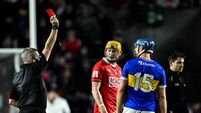My courageous and determined Mandy celebrates her independence
She’s a wise and stubborn woman, full of emotional intelligence and a very determined personality. The birthday was a family affair, and thanks to the weather we were able to do it in the garden.
We’ll have a bigger bash to celebrate the big 40 later on. Frieda has picked a trendy and sophisticated place to have the party for her friends. There’ll be cocktails and party frocks, and there’ll be a highly energetic disco. She picked it because people with Down’s syndrome don’t always get to hold their parties in cool and sophisticated places.















